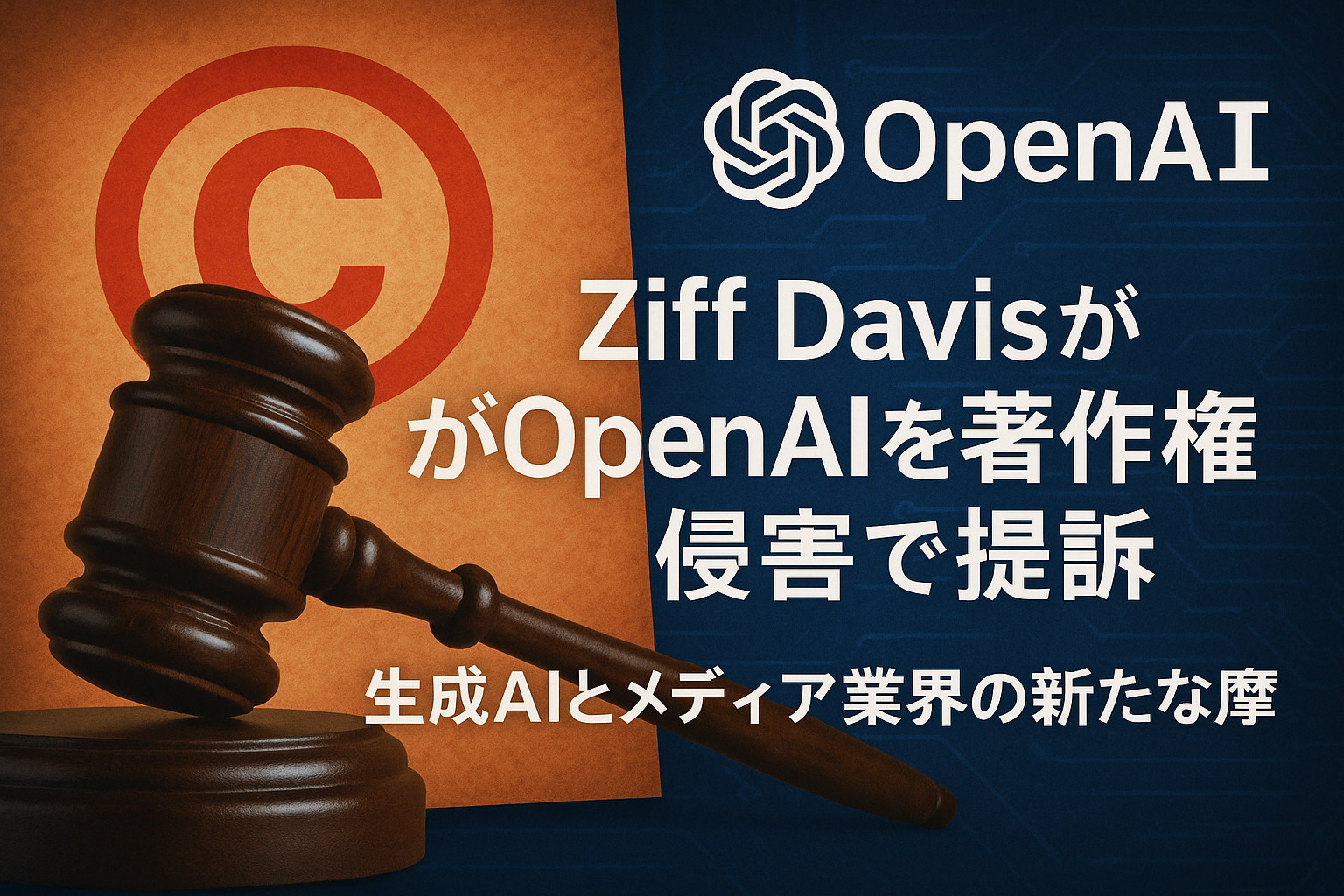On April 24, 2025, it was reported that Ziff Davis, a major overseas media conglomerate, has filed a lawsuit against OpenAI for copyright infringement. Ziff Davis, which owns well-known brands such as IGN and Eurogamer, has taken this action, symbolizing the growing seriousness of copyright issues surrounding generative AI. In this article, we analyze the background of this news and its potential implications.
Background of the Lawsuit: Data Collection by GPTBot and Copyright Infringement
According to Ziff Davis, OpenAI utilized a crawler called GPTBot to collect information from the internet for its AI development. During this process, it is alleged that OpenAI used articles owned by Ziff Davis without authorization. Moreover, despite OpenAI’s claims that crawling could be restricted via robots.txt files, Ziff Davis points out that in practice, such restrictions were not effectively enforced.
This situation was not merely seen as a technical mishap but perceived as “intentional and persistent copyright infringement,” leading to the current lawsuit.
Diverging Responses from the Media Industry: Litigation or Partnership
Several media organizations, including The New York Times, have already filed lawsuits against OpenAI for copyright infringement, with court proceedings ongoing. Meanwhile, some media outlets, such as The Washington Post and The Guardian, have chosen to establish partnerships with OpenAI instead.
In short, the global media industry now faces a critical choice between “confrontation” and “coexistence.”
The Next Focus: The Limits of “Fair Use”
OpenAI has consistently argued “fair use” in past lawsuits. However, given that it is developing and commercializing generative AI for profit, the extent to which fair use can be applied is a major point of contention.
The outcome of Ziff Davis’s lawsuit could significantly impact how generative AI systems collect and use data, suggesting that this case may have broader implications beyond a dispute between two companies.
Conclusion: The “AI and Copyright” Issue Enters a New Phase
The lawsuit by Ziff Davis highlights the escalating tensions between generative AI developers and traditional content holders. While more lawsuits are likely to follow, new models of coexistence through partnerships may also emerge.
As generative AI continues to evolve, the very structure of the copyright system itself is likely to face serious reevaluation.

